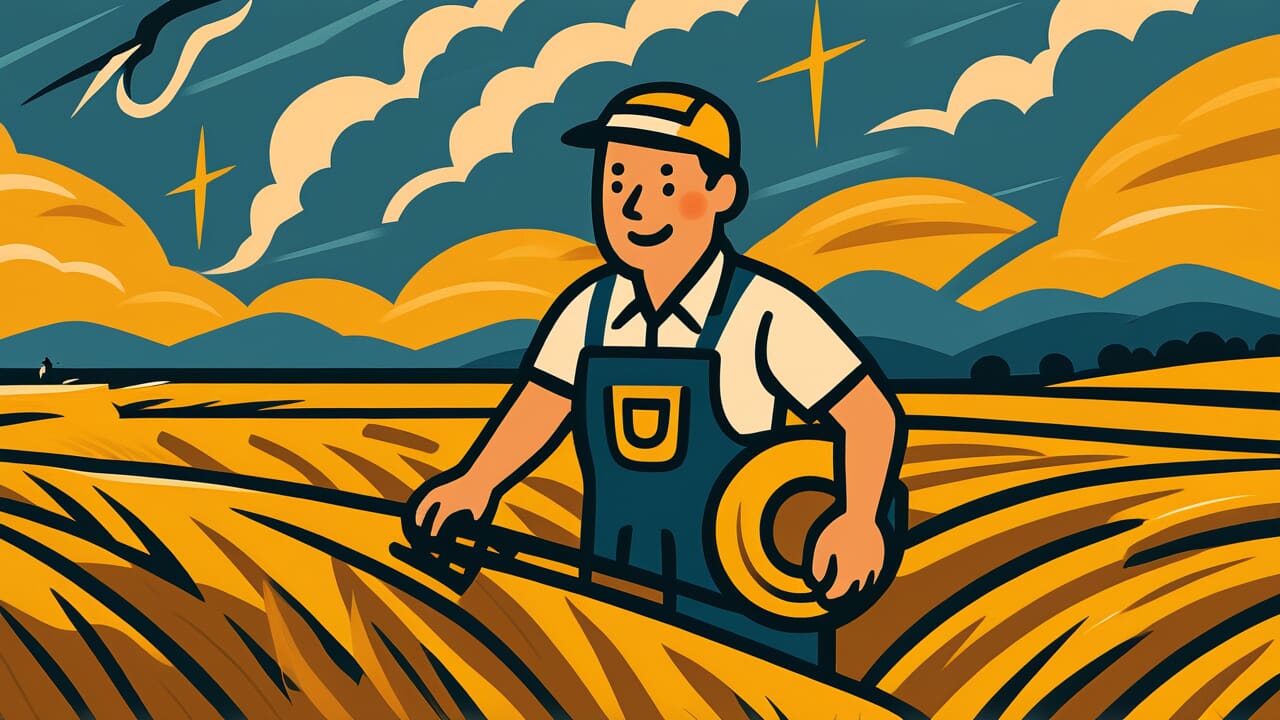[Disclaimer] This article is reconstructed based on information from external sources. Please verify the original source before referring to this content.
News Summary
The following content was published online. A translated summary is presented below. See the source for details.
Federal Minister of Agriculture, Food and Regional Identity Alois Rainer presented the 2025 harvest report, revealing a significant increase in German grain production despite ongoing climate-related challenges. The total grain harvest reached between 43.5 and 44.73 million tonnes, marking an 11 to 14.8 percent increase from the previous year. Winter wheat production surged by 22 to 26.3 percent, reaching approximately 21.7 to 22.45 million tonnes. Winter rapeseed also saw growth, with production up by 6.9 to 9.4 percent. However, the report highlighted quality concerns due to adverse weather conditions, including spring droughts and late summer rains, which affected protein content and falling numbers in wheat. The Ministry noted an improvement in average protein content for winter wheat to 12% from 11.6% last year. The report underscores the resilience of German agriculture in the face of climate variability and the ongoing efforts to balance productivity with sustainability through technological adoption and adaptive farming practices.
Source: Bundesregierung (Germany)
Our Commentary
Background and Context

The 2025 German harvest report comes amid a global context of climate change impacts on agriculture. Germany, like many countries, has been grappling with extreme weather events and the need for agricultural adaptation. The country has been at the forefront of implementing precision farming technologies and sustainable practices to mitigate these challenges.
Expert Analysis
The record grain harvest in 2025 demonstrates the resilience and adaptability of German agriculture. Despite facing climate-related challenges, the sector has managed to increase production significantly. This success can be attributed to a combination of favorable weather conditions in some regions, technological advancements, and adaptive farming strategies.
Key points:
- The increase in grain production showcases the effectiveness of Germany’s agricultural policies and technologies.
- Quality issues highlight the ongoing challenges posed by climate variability.
- The report underscores the importance of balancing quantity with quality in agricultural production.
Additional Data and Fact Reinforcement
The 2025 harvest data reveals significant improvements across various crops:
- Total grain harvest: 43.5 to 44.73 million tonnes (11-14.8% increase)
- Winter wheat production: 21.7 to 22.45 million tonnes (22-26.3% increase)
- Winter rapeseed production: 3.85 to 3.96 million tonnes (6.9-9.4% increase)
Related News
The success of the German harvest aligns with global trends, as the 2025/26 global wheat harvest is forecasted at a record 808 million tons. This positive outlook extends to corn and rice production, indicating a generally favorable year for global agriculture despite ongoing climate challenges.
Summary

The 2025 German harvest report reflects a significant achievement in agricultural productivity while highlighting the ongoing need for adaptation to climate change. As Germany continues to invest in sustainable and technologically advanced farming practices, the sector demonstrates resilience in the face of environmental challenges, setting a potential model for other nations grappling with similar issues.


